AFL Fixture 2023: Eddie McGuire’s bold plan to equalise the draw
Wildcard finals are just the start of a radical proposal from ex-Collingwood president Eddie McGuire to create a fairer fixture for the clubs, the AFL and fans. HAVE YOUR SAY
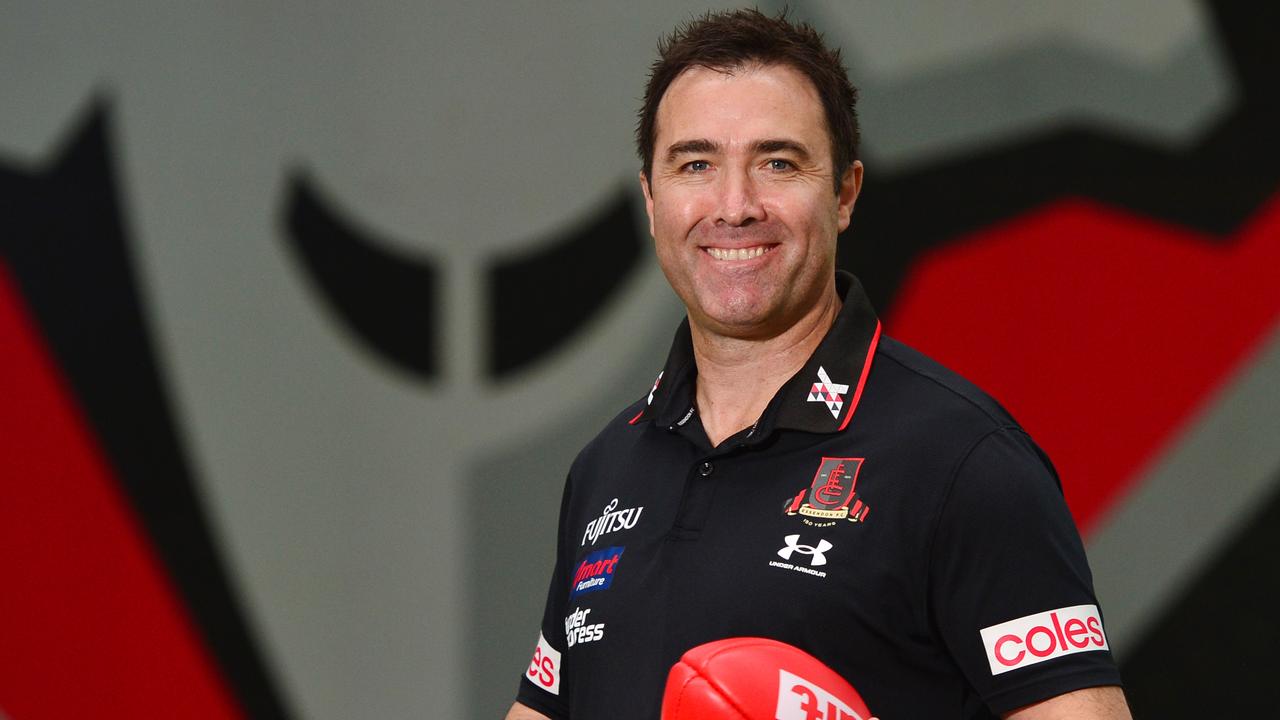
Eddie McGuire has called on the AFL to take the “fix” out of the fixture by finding a more equitable, integrity-driven solution to the annual inconsistencies of the draw.
The former Collingwood president said clubs and fans deserved a fairer system in which integrity was paramount, where all 18 clubs remained in the finals hunt for a longer period and where every game throughout the season meant something.
McGuire spoke as former St Kilda coach Grant Thomas launched a scathing assessment of the recent 2023 AFL draw during the week.
As part of a discussion point, the Herald Sun spoke with McGuire this week about was to make the draw could be fairer for all clubs.
McGuire came up with his own plan, but stressed he was open to debate on ways to make the draw better for all parties including clubs, players, fans and broadcasters.
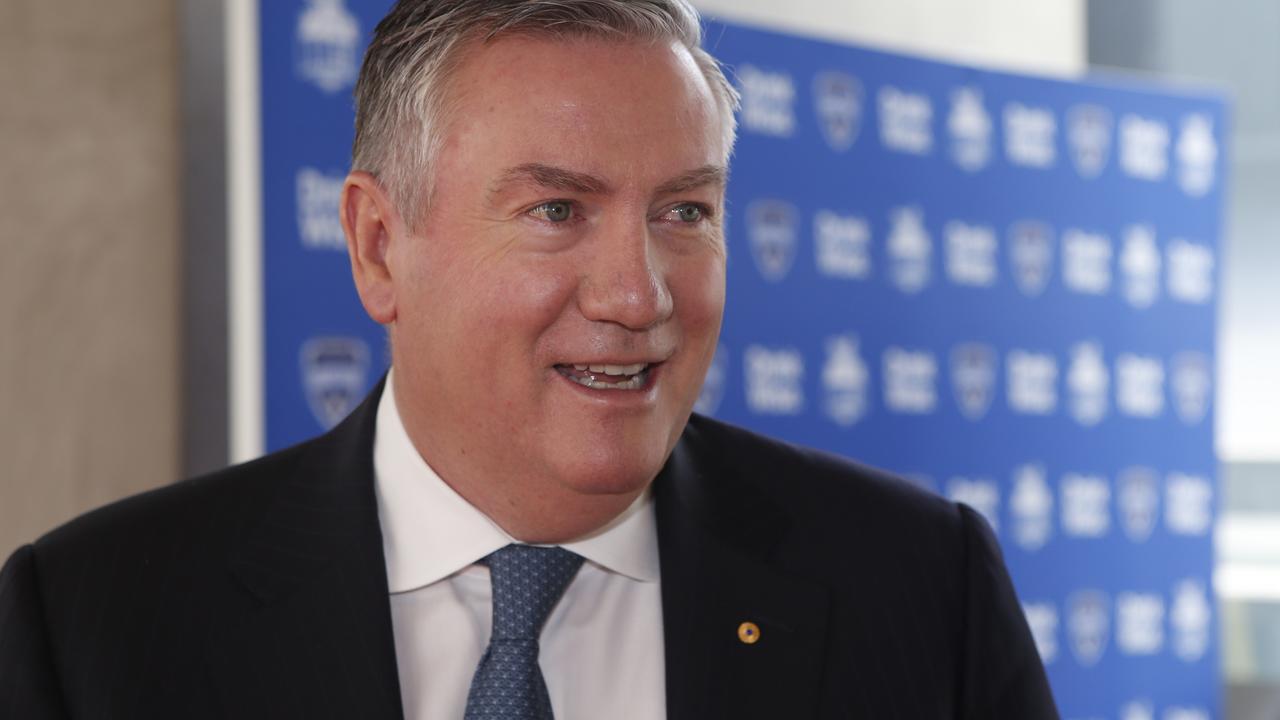
“The two most obvious ways to make it fairer are to play 17 games (where everyone plays each other once) or 34 games (where everyone plays each other twice),” McGuire said.
“But neither of them are going to work.
“Thirty-four games will kill the players and 17 games will kill the funding for junior football, women’s football and game development, with the impact of a reduced number of games with the television rights.
“We need a better way to make the draw fairer, while keeping to a similar amount of games.”
McGuire’s fixture plan involves 219 games — with three more matches than in the current system, which would provide a financial windfall for the league.
He said the AFL’s new $4.5 billion broadcast rights deal meant it was an opportune time to prioritise fairness.
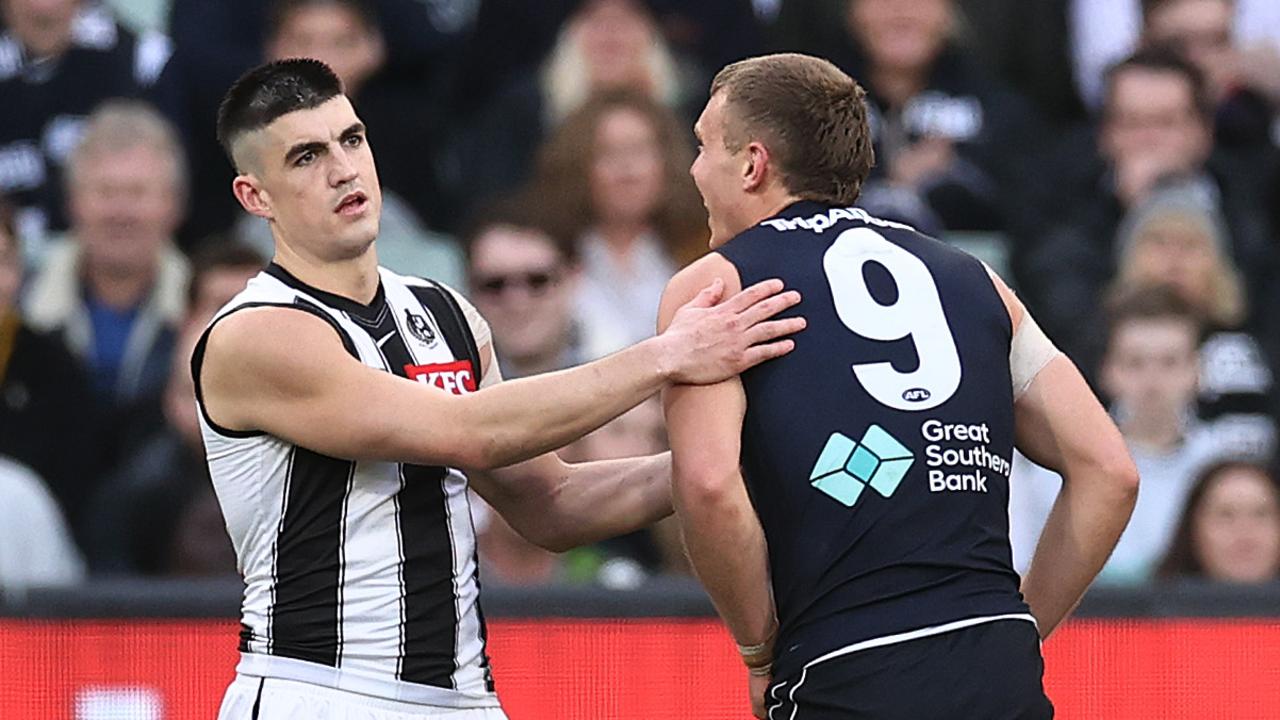
“The AFL, through its commission and the goodwill of the fans, has over the last 30 to 40 years looked at the sport for the greater good, with equalisation, ground rationalisation, biased fixtures and the like,” McGuire said.
“Now that the AFL is in a position of financial security, it may be time now to swing back to ensure the integrity of the competition is paramount, particularly with increased betting on the games.”
McGuire’s system is also designed to keep struggling teams alive in the season for longer.
“While the four-letter word (at the AFL) ‘Cash’ is important, the most significant four-letter word in football should be ’Hope’,” he said.
“As it is now, we get teams who (effectively) have their seasons over so early in the year and that’s not good for the players or the fans.
“We need to ensure clubs keep playing out the season for as long as they can.”
McGuire’s plan would see all 18 clubs play against each other once in the first 17 rounds.
This would be followed by a Rivalry Round in which Victorian teams would play against long-standing rivals on a rotational basis and non-Victorian teams would play against cross-state rivals (Derby, Showdown, Battle of the Bridge and Q-Clash).
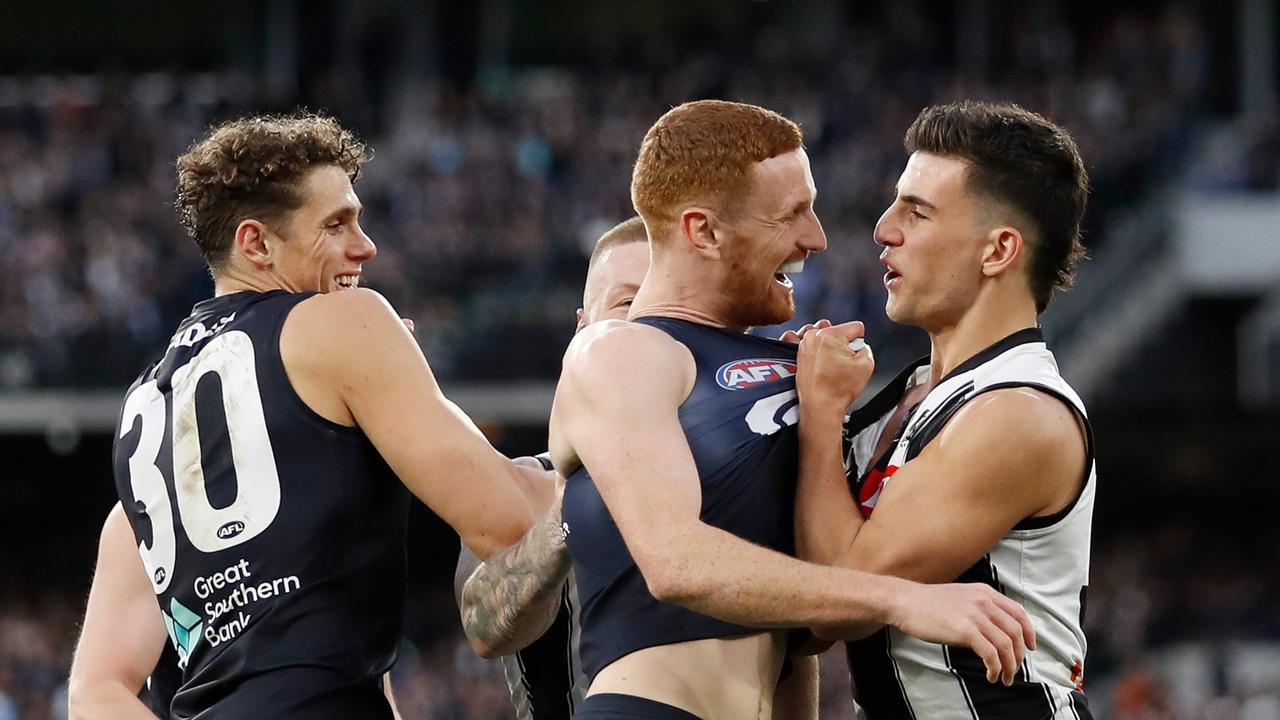
Gather Round would become the 19th round, with the added interest that the fixture could be drawn out of a hat live on television, so long as the pairings were different to Rivalry Round
A three-week qualifying period would follow with clubs divided into a top six, middle six and bottom six, which would almost guarantee a more even competition across those back-end weeks.
At the conclusion of those three weeks, the top 14 teams would have a week off while the bottom four would play in two wildcard games — 15x18 and 16x17 — with the losers eliminated and the winners progressing.
That would leave 16 teams, allowing for two finals series run to concurrently with the odd teams (1, 3, 5, 7, 9, 11, 13 & 15) and the even teams (2, 4, 6, 8, 10, 12, 14 & 16), following the same format as the current eight.
The top four teams would have the double chance, while the winner of each of the respective finals series would ultimately meet in a grand final to determine the premier team.
“The bottom line is the best team over the entire season will be the premier,” he said.
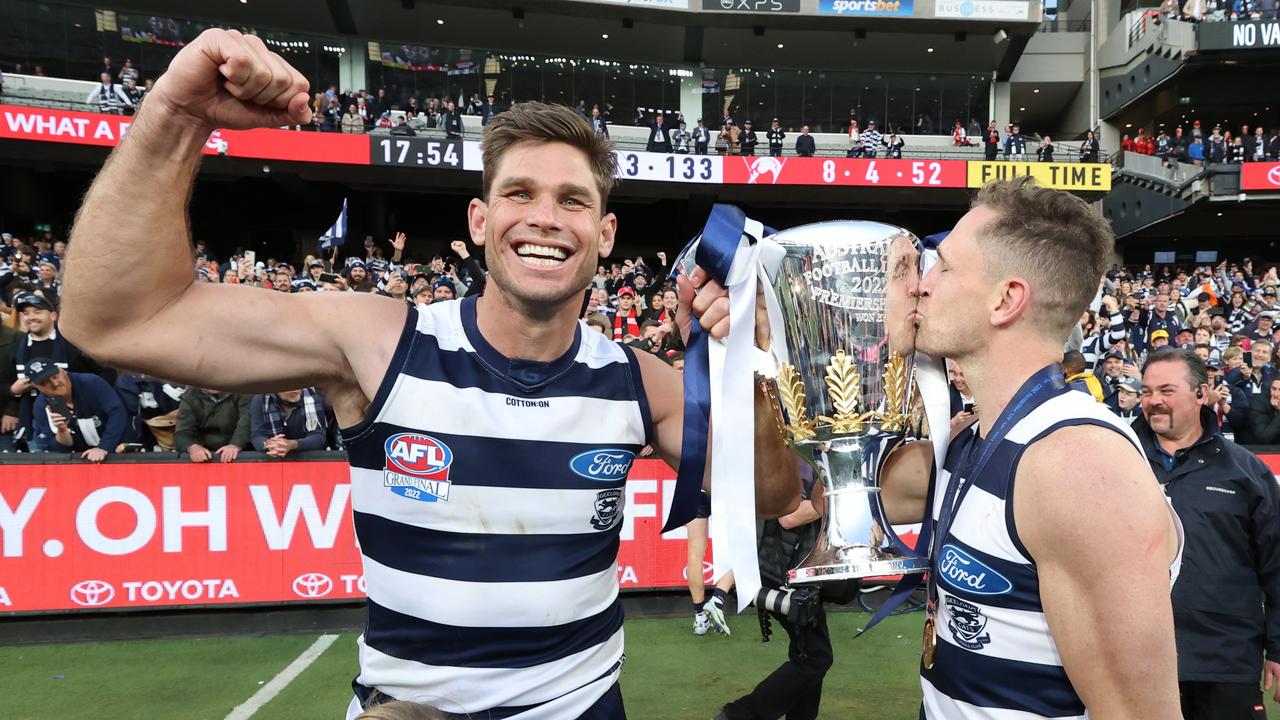
McGuire acknowledges there would be some negotiating required to fulfil existing stadium deals and he knows some won’t like the fact that struggling team would remain in the premiership mix throughout the season in his plan.
But he said the issue of a fairer, more equitable draw was so important that the AFL needed to do something.
Fixture provides no rest for Pies
- Chris Cavanagh
New Essendon coach Brad Scott has been handed an early Christmas present, with the Bombers receiving the easiest fixture of any side.
An in-depth fixture analysis by Champion Data reveals Essendon also has the easiest final five games of the season and has been scheduled to play just six interstate matches – the equal-fewest of any team.
Only two of the Bombers’ double-up games next year are set to come against 2022 finalists, reigning premier Geelong and preliminary finalist Collingwood.
The other four double-up opponents for Scott’s side are Port Adelaide (11th this year), Greater Western Sydney (16th), West Coast (17th) and North Melbourne (18th).
Essendon finished 15th on the ladder with just seven wins this year, but the Bombers are bullish that they can improve quickly under Scott next season.
While Scott has hit the jackpot, the same can’t be said for out-of-contract Western Bulldogs coach Luke Beveridge, who faces an uphill battle to push his team back up the ladder.
The Bulldogs – who finished eighth this year before losing an elimination final to Fremantle – copped the second-hardest fixture of any team as well as the hardest first six rounds.
Beveridge’s side starts the year with matches against Melbourne, St Kilda, Brisbane, Richmond, Port Adelaide and Fremantle.
The Bulldogs’ six double-up opponents are fellow 2022 finalists Geelong, Richmond and Fremantle, along with Port Adelaide, Hawthorn and Greater Western Sydney.
The difficult fixture adds salt to the wounds for the Bulldogs, who were also disappointed to be shafted from their marquee Good Friday clash against North Melbourne.
Only this year’s runner-up Sydney is judged to have a harder fixture than the Bulldogs.
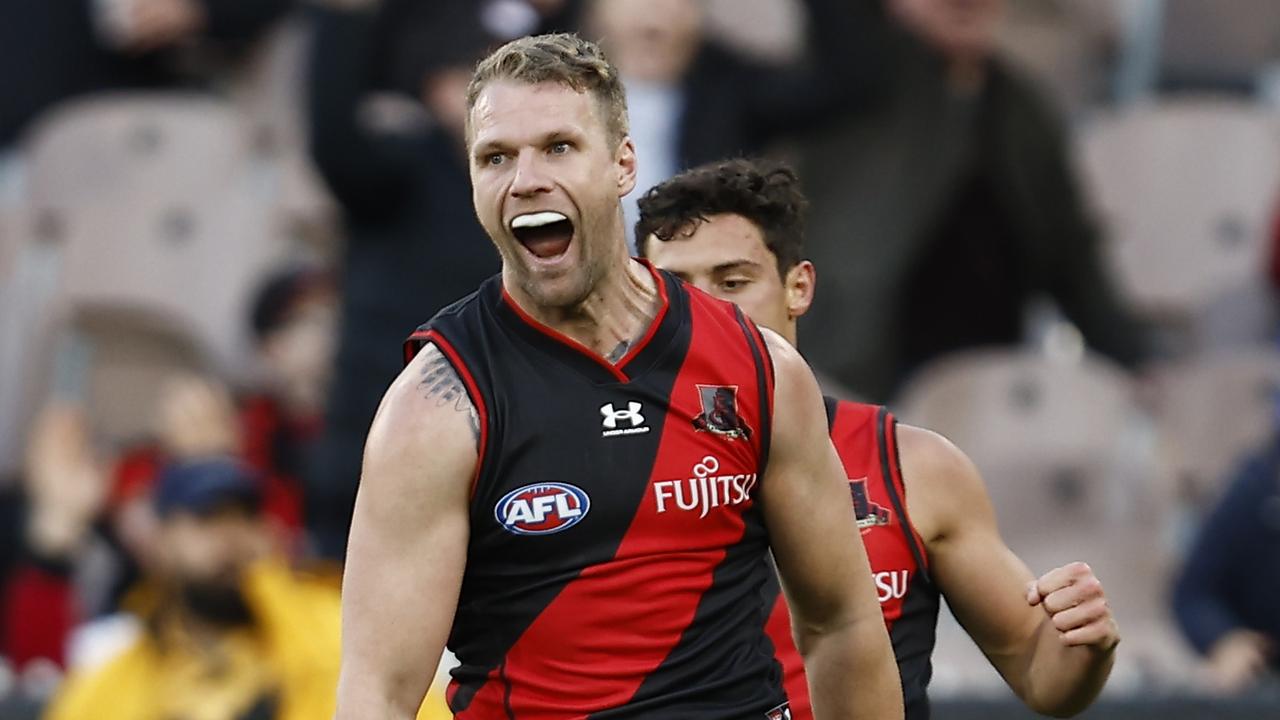
The team the Swans beat in this year’s preliminary final – Collingwood – has the third-hardest fixture, with Port Adelaide ranking fourth in a contract year for Power coach Ken Hinkley.
Carlton has the second-easiest fixture behind Essendon, facing only two finalists from this year twice, with those being Melbourne and Collingwood.
The Blues’ other double-up games are against Gold Coast (12th this year), St Kilda (10th), GWS (16th) and West Coast (17th).
HOME AND AWAY
Victorian sides Carlton, Collingwood, Essendon, Geelong and the Western Bulldogs will all play only six interstate matches next year – less than half as many as some interstate teams.
With the extra Gather Round in South Australia being added to the fixture next year, the Gold Coast Suns will play 13 of their 23 games outside of Queensland.
Two of those are home games which the club will play at Darwin’s TIO Stadium in May and June.
Fellow expansion side GWS will play only eight games at Giants Stadium next season among a total of nine games in Sydney.
The Giants have three other home games scheduled for Canberra’s Manuka Oval as part of a deal with the ACT government which was recently extended for 10 years.
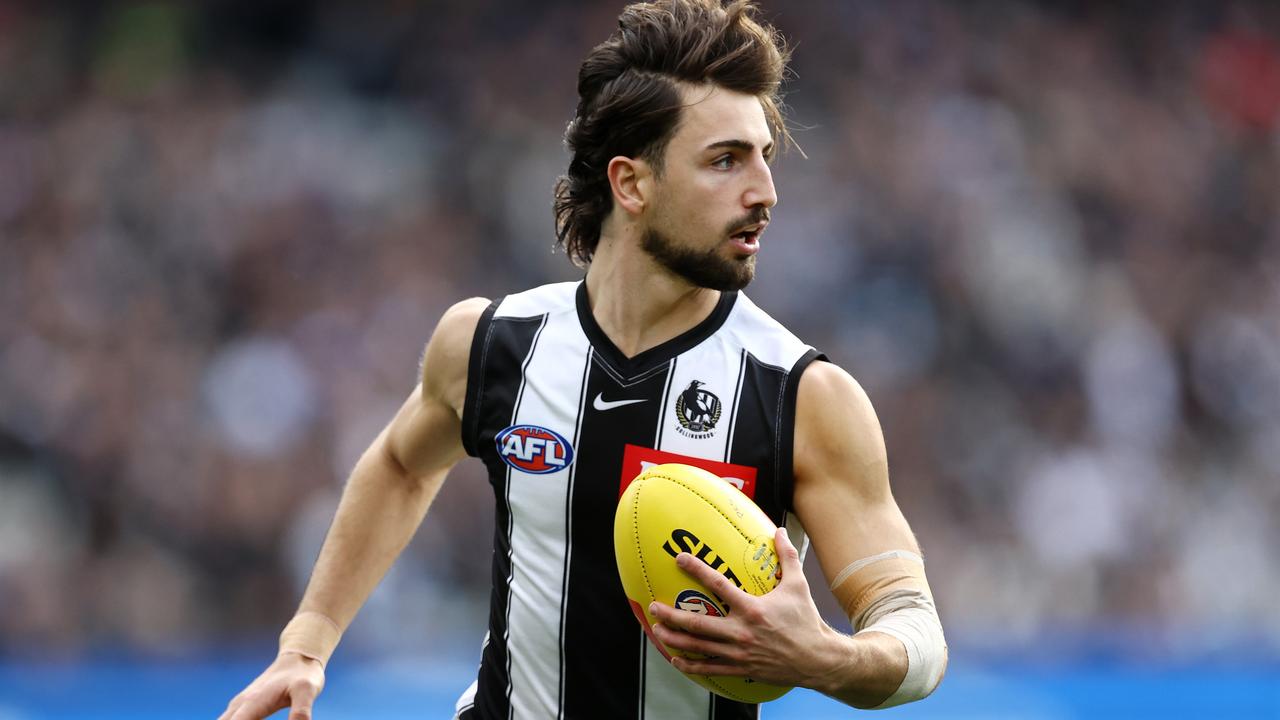
SHORT BREAKS
Collingwood is set to face fresher opponents in a whopping 10 of its first 13 games next year, in what is an interesting fixture quirk.
The Magpies will have had one day fewer than their opponents to prepare for eight of those matches and two fewer days than their opponents in two other matches.
Collingwood will have a longer break than its opponent for just two matches in the early part of the year, while it will be coming off the same break as an opponent just once.
Richmond, St Kilda, Hawthorn and Essendon each face seven opponents who will be coming off a longer break in their first 13 games.
On the flip side, Carlton will enter eight of its first 13 games having enjoyed a longer break than its opponent.




